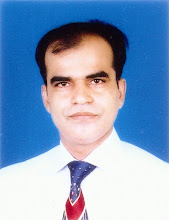Empires of the Indus: The Story of a River
By Alice Albinia
John Murray £20 384 pages
FT bookshop price: £16
Review by Paddy Docherty
Empires of the Indus is a magnificent book, a triumphant melding of travel and history into a compelling story of adventure and discovery.
Alice Albinia has taken her obsession with the great river and wrought a captivating account of her explorations through Pakistan, Afghanistan, India and Tibet, taking us hundreds of miles upstream and back in time to the earliest days.
She begins in Karachi in Pakistan, close to where the Indus enters the Arabian Sea.
By the time she reaches the source of the river in Tibet, we have been drawn through an array of peoples, cultures, landscapes and stories.
The book is deftly structured: the further upriver we journey, the deeper into history we go. This approach does not, however, tie Albinia narrowly to the river itself, and she branches off on numerous adventurous diversions around the cultural watershed of the Indus.
These forays, and her evident determination to track down little-known rock carvings or tribal villages, are enlightening.
I was especially taken by her burqa-clad and highly illegal journey through the tribal badlands of Waziristan, for which she surely deserves a medal.
Elsewhere, we follow her as she walks the path of Alexander the Great as he arrived at the Indus, and – clad in a piece of plastic sheet against the rain – tramping through snowy Tibetan mountains.
These exploits serve to illuminate or uncover rich historical evidence. Most notable is the deeply varied nature of the cultures and religions that grew or coalesced around the river: we learn of Sufi saints, river cults and Kalash practices besides Buddhism, Sikhism and Hinduism.
There are some surprising tales of collaboration between Muslims and Hindus and between Muslims and Sikhs – reminders that religions do not have to divide us – and many curious cultural fusions.
Hidden history is brought to light, notably a chapter on the Sheedi people of Sindh, descendents of African slaves now living as modern Pakistanis. Another surprise was the sexual current that runs through the book, from Pashtun catamites to Tibetan polyandry.
The entire journey is linked by a thread of the Rig Veda, the ancient Sanskrit hymns of worship which exalted the Indus as the ”Unconquered Sindhu”, river of rivers. Albinia is an engaging travelling companion with a quietly determined and gently humorous voice, often to be heard persuading bemused army officers or incredulous tribal leaders into letting her into forbidden places or across closed borders.
A reader cannot help but be delighted as she describes her discoveries, such as when she is led to an unexpected prehistoric stone circle in Kashmir:
“I hear myself gasping out loud. The circle is resplendent, majestic, isolated – a solid ring of stones in this silent, empty place. On our left is a sheer brown wall of rock, and the blue slither of the river; to our right, a wider, greener river, and a dark mass of mountains in the distance.
In the east, beyond the point where the rivers meet, snow-topped mountains shine fiercely in the afternoon light. I can almost hear, like a whisper, the footsteps of the people who created this circle.
For the first time in my life I want to get down on my knees and worship at this altar to human endeavour, to the power of Nature.”Her passion is infectious throughout; I felt Albinia’s relief and frustrations, her alarms and compulsions as I read. There is concern, too, for the riverside peoples and cultures, and for the river itself.
At times this anxiety even becomes sadness, a momentary lament for the impact of the modern world on the ancient Indus waters. Ultimately, though, this is an inspiring book, and readers with even a fraction of Albinia’s wanderlust will want to set off on their own explorations.
Paddy Docherty is the author of ‘The Khyber Pass: A History of Empire and Invasion’ (Faber)






